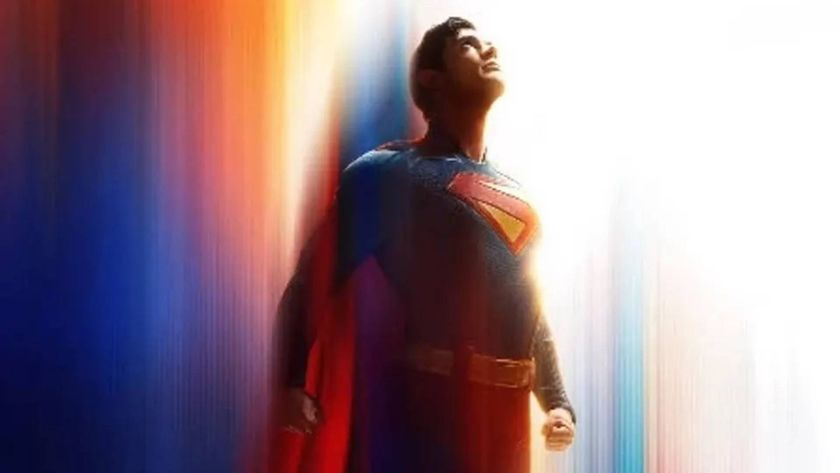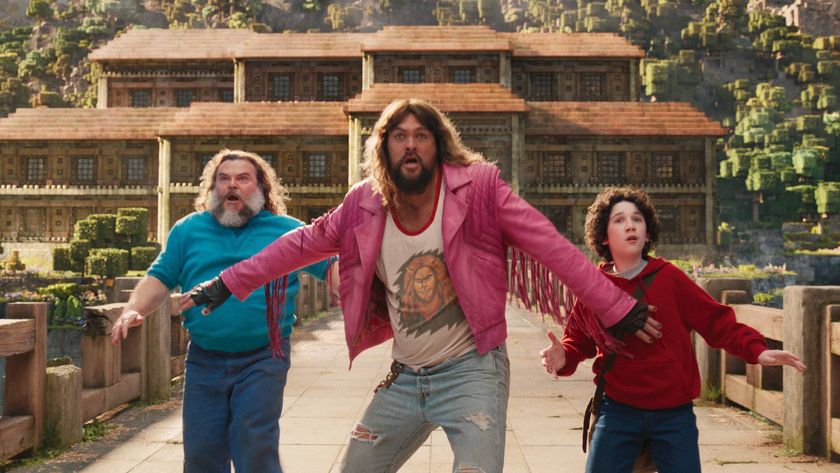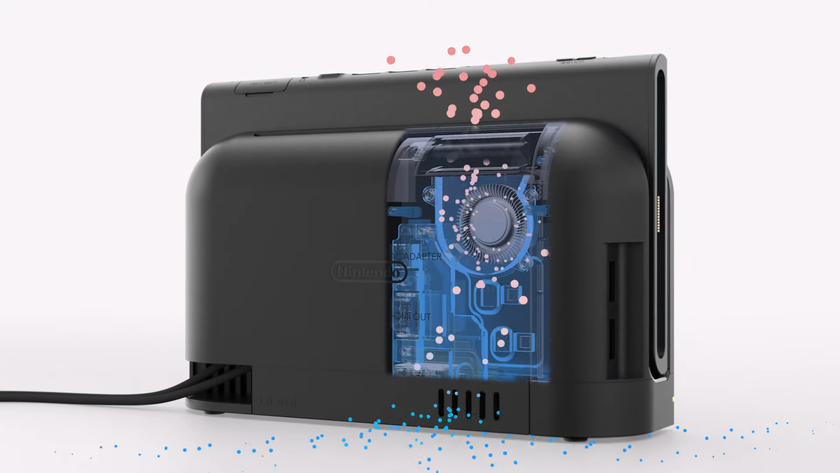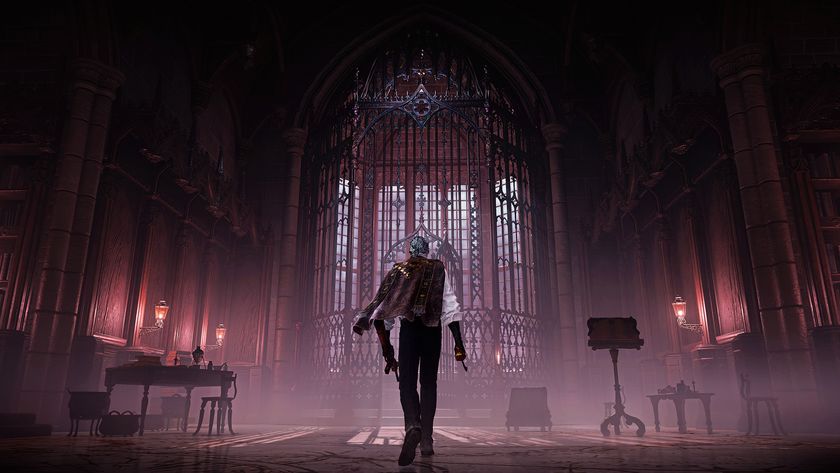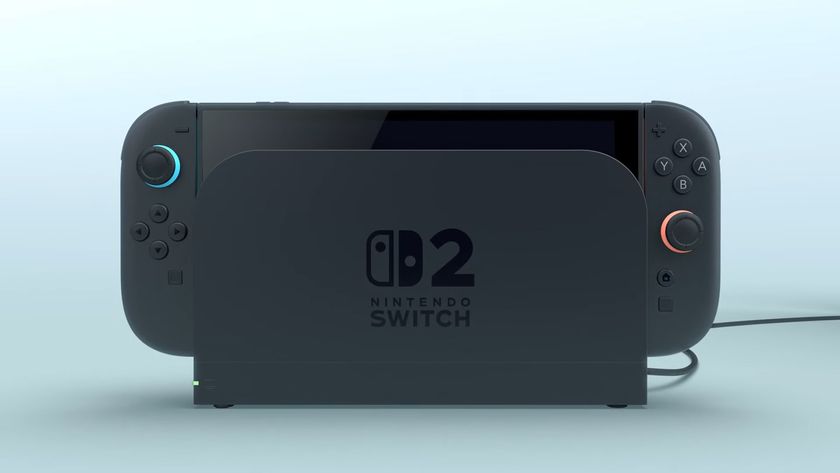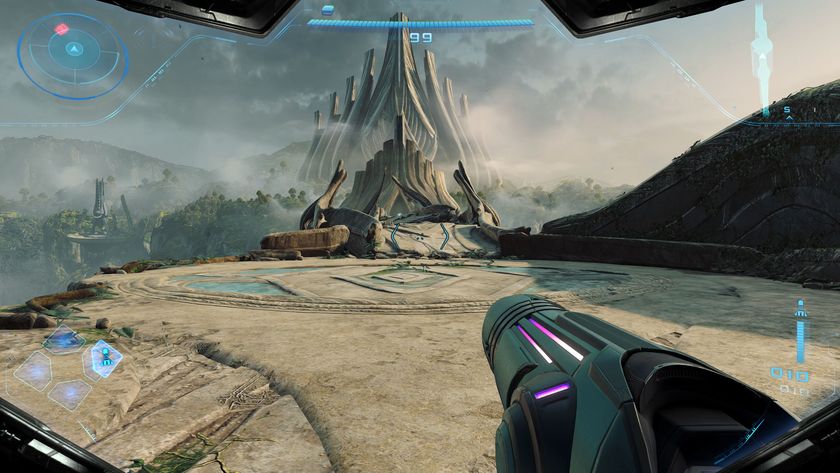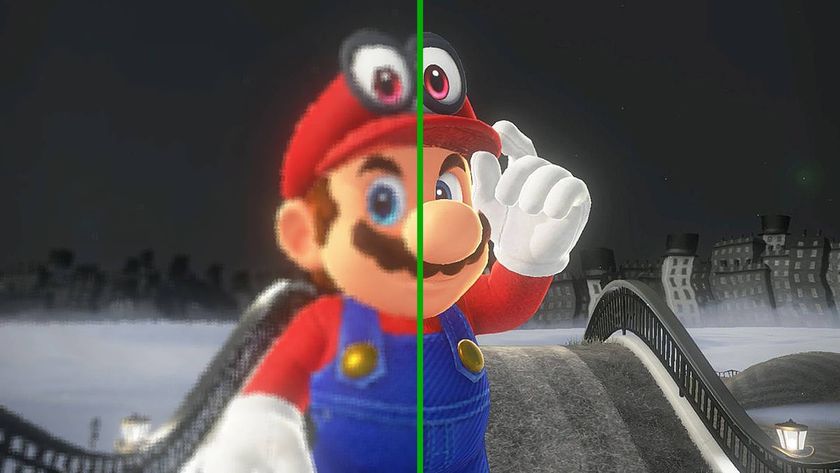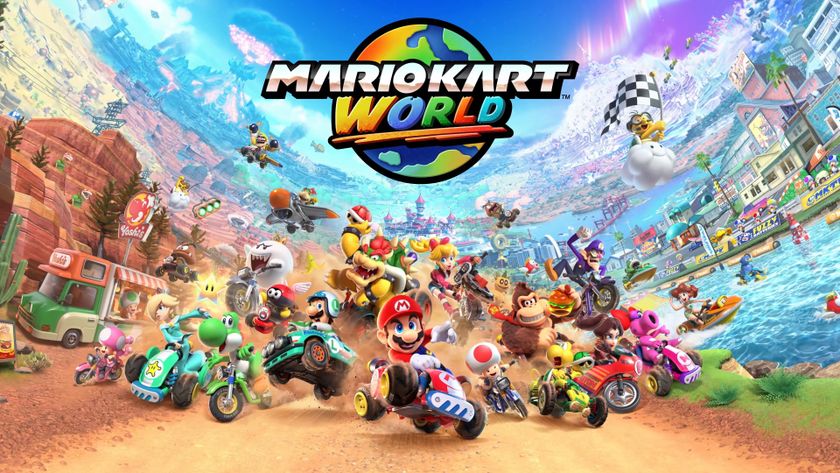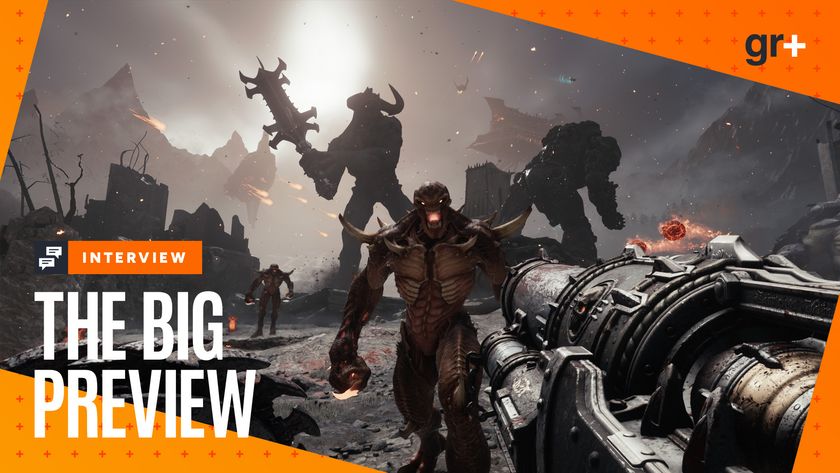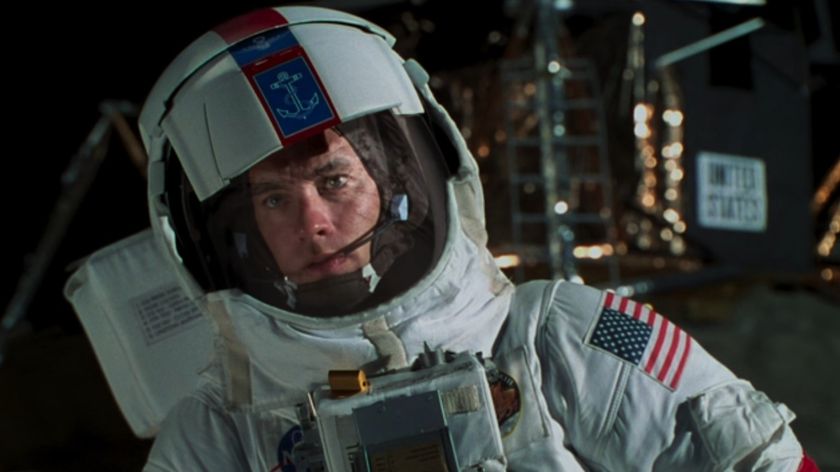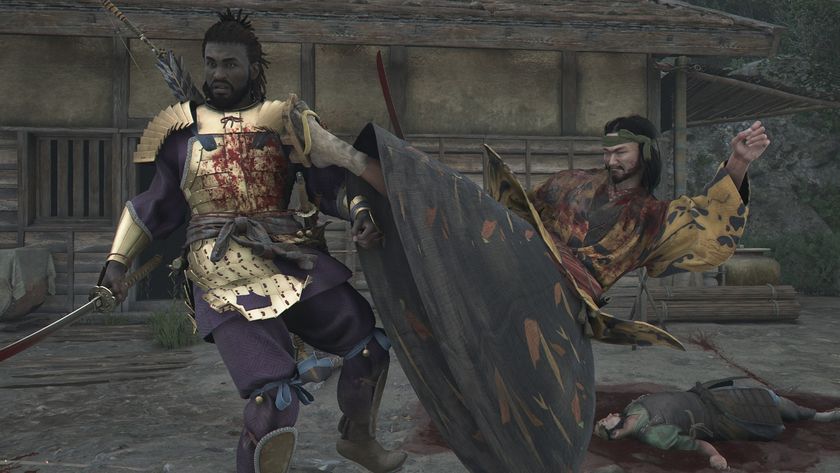Django Unchained: 50 Best Moments
Warning: HUGE spoilers follow...
Mandingo fight
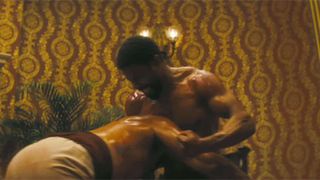
All of Unchained 's impossibly disturbing insights into how slaves were treated seem to last for an eternity, and the Mandingo fight is no different.
Blood and sweat mingle as two men attempt to kill each other for the amusement of the watching whites.
Candie's slave wins the fight, by gouging out his opponents eyes.
But the brutality isn't over. Candie drops a hammer beside him, and growls: "Finish him."
You might not notice it on first watch, but the fight takes place in a room that's a triumph of production design.
Red and yellow wallpaper covers the walls, with a pattern that looks like flames. A large crackling fireplace is the centerpiece of the room.
Truly, this is Satan's playground.
Sign up for the Total Film Newsletter
Bringing all the latest movie news, features, and reviews to your inbox
Whipping scene
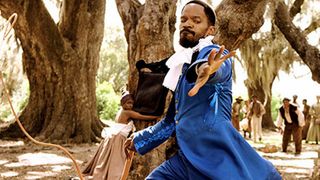
After Django has killed the first Brittle brother, Big John, he picks up a whip and runs to the second, Little Raj, who's busily fumbling with his gun.
In glorious slow-motion, Django whips his former master to the ground.
Then, he lashes him with furious passion. Foxx puts every ounce of strength into his arm, and every expression of hate on his face.
Django then picks up a gun and softly says to the watching slaves: "Y'all wanna see something?"
Then he shoots his former tormentor until his gun empties.
It's a hugely cathartic moment, both for Django, and any sane member of the audience.
Horse strut
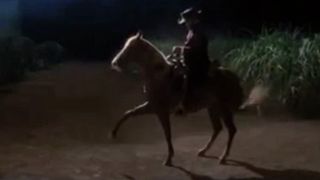
A lot of Unchained ’s critics felt the film went on for far too long. As far as we were concerned, it could’ve been twice the length.
Because if this version had been cut, we would almost certainly lost the shot of Django pulling tricks on his horse in the closing moments.
It’s the ultimate in self-indulgence, the equestrian equivalent of an actor talent (“Your horse can do what? Oh, we’ve gotta get that into the movie.”).
Oh, and it’s also preposterously cool.
Candie and Stephen reunited

When Calvin arrives back at Candyland, his slave Stephen is the first to greet him. Immediately, it's clear they don't have the usual slave / master relationship.
"Hello! Stephen, my boy!" Candie says.
"Yeah, yeah, yeah, hello my ass," Stephen replies.
Stephen angrily asks why Django's being allowed to ride a horse.
"Oh Stephen, did you have nails for breakfast? Why are you so ornery? Did you miss me?" Calvin responds.
"Yes sir, I missed you. Like a hog missed slop, like a baby missed mammy's titty. I missed you like I missed a rock in my shoe."
Far from being angry and insulted, Candie laughs along. It's clear this is a well practiced routine between the two men.
Candie is extremely affectionate with Stephen - there's clear love in his voice when he says lines like: "Django, this is another cheeky black bugger like yourself, Stephen. Stephen, this is Django, you two ought to hate each other."
And hate each other, they do...
"Remember, get the sheriff, not the Marshall!"
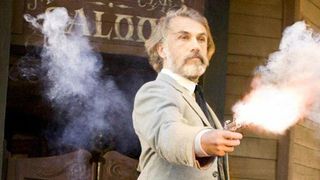
Django and Schultz are enjoying a friendly pint, when - as if on cue - the sheriff arrives to spoil their fun.
They're ejected from the establishment, and given a telling off. Well, half of a telling off, because before the lawman has finished his speech, Schultz has wordlessly shot him in the stomach and head.
Schultz says: "Now you can get the Marshall."
Django, much like the audience at this point, is wondering who the hell King is - is he crazy? How on earth can this be his plan?
But then the Marshall arrives, Schultz explains himself, and we had to restrain ourselves from standing up and applauding.
It's a masterclass in screenwriting.
"I count six shots."
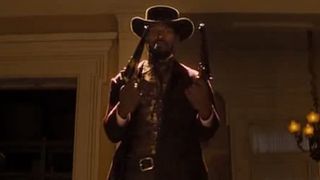
It's the classic western movie moment, one you'll have seen a thousand times before. One gunslinger tells the other that they've counted the bullets, and their enemy is out of ammo.
Tarantino's twist? It's not the number of bullets that's important, it's the number of guns.
It's one of those why-has-this-never-been-done-before ideas that QT is so good at, and a real punch the air and cheer moment.
Leonardos hand
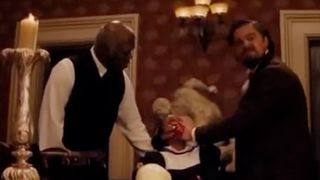
When Leonardo DiCaprio’s Calvin Candie brings his hand down hard on the dinner table, he smashes a (real) glass, embedding (real) shards into the palm of his (real) hand.
Leo doesn’t react, only allowing himself a slight glance when the blood starts to drip. You can see the actor immediately making a decision, using the wound to enhance his character.
He starts to display his palm, using it to intimidate his enemies.
At one point, he even smears his (real) blood onto Kerry Washington’s face. It’s a credit to everyone in that room that they were able to stay in character. It’s the moment that should’ve gotten DiCaprio an Oscar nomination.
"Goodbye Miss Lara"
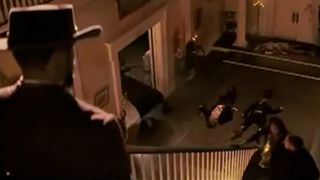
"Cora, before you go, could you tell Miss Lara goodbye?"
"Do what now?"
"I said tell Miss Lara goodbye."
"Bye Miss Lara."
Django's gun cracks, and Miss Lara gets blown off her feet stage left, like she's being dragged away by demons.
It's one of the darkest laughs in the movie, but there's no guilt. It's good to see Miss Lara get what she deserves.
We hope, somewhere in Hell, Calvin Candie is screaming.
Auf wiedersehen
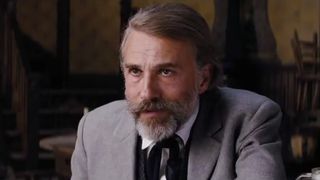
When Schultz says farewell to Candie, it signifies the end of a fairly subtle character arc.
"Since what auf wiedersehen actually means is 'Until I see you again,' and since I never wish to see you again, to you sir, I say goodbye," he says.
Then, when Candie insists he shake hands before leaving, King finds the idea so repellent he chooses to shoot him instead.
That's despite the fact Schultz actually shakes Candie's hand when he first meets him, even though he's already described him as a despicable man.
Also, he says auf wiedersehen when he shoots the regulators… and we're pretty sure he didn't want to see that bunch of cowards again.
So, despite some critics claiming he doesn't change throughout, Schultz does go on a journey.
He starts the film as a liberal, with an obvious distaste for slavery. But he doesn't give Django his freedom immediately, stating that he'll keep the slave / master dynamic in place, because it's useful to him.
However, the atrocities he witnesses over the course of his travels with Django means that he is unable to offer even simple pleasantries to a slave-owning plantation master he'd previously bowed before.
It's a neat arc, and one which is linked to the most moving moment in the movie.
When Django kisses his own hand, lays it on Schultz's head, and says "Auf wiendersen." Only the hardiest members of the audience would have failed to shed a tear.
The explosion
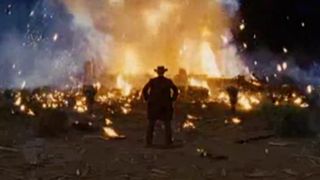
If you've somehow landed on this page by accident, the following is a massive spoiler. Please don't read on if you haven't seen Django Unchained.
It’s become one of the biggest clichés of action cinema – the slow-mo shot of the hero walking away from a huge explosion, without acknowledging so much as a warm back.
Here, Django chooses to turn and look at his personal fireball, as Candyland returns to where it belongs – Hell.
And to top it off, he turns and grins at his true love.
It turns out that cool guys do look at explosions, after all.
Sam Ashurst is a London-based film maker, journalist, and podcast host. He's the director of Frankenstein's Creature, A Little More Flesh + A Little More Flesh 2, and co-hosts the Arrow Podcast. His words have appeared on HuffPost, MSN, The Independent, Yahoo, Cosmopolitan, and many more, as well as of course for us here at 12DOVE.
